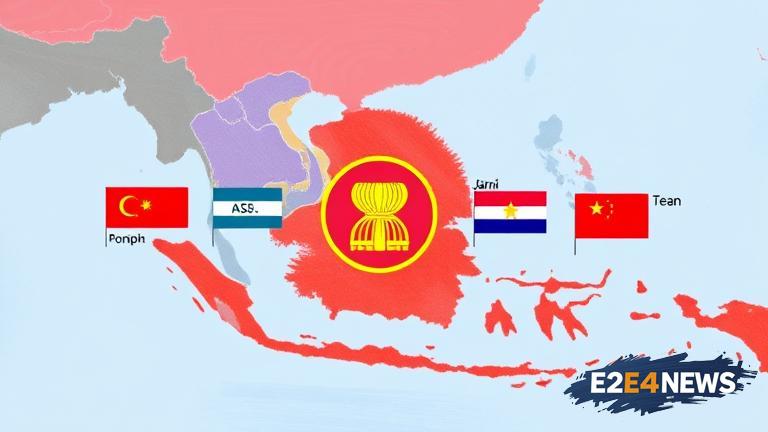The Association of Southeast Asian Nations (ASEAN) has recently convened to discuss and reinforce its economic strategies, with a focus on enhancing regional cooperation and integration. The meeting brought together high-ranking officials from the 10 member states, who engaged in productive dialogue and exchanged ideas on how to propel the region’s economic growth. ASEAN’s economic ministers acknowledged the significance of fostering a more unified and interconnected region, recognizing the vast potential for trade, investment, and innovation. They emphasized the need to address existing challenges and obstacles, such as infrastructure gaps, regulatory barriers, and disparities in economic development. To achieve its goals, ASEAN aims to promote greater economic integration, improve the business environment, and enhance the region’s competitiveness. The organization also seeks to leverage technology and digitalization to drive growth, improve living standards, and create new opportunities for its citizens. Furthermore, ASEAN is committed to strengthening its partnerships with other regional and global economies, exploring new areas of cooperation, and promoting sustainable and inclusive development. The region’s economic growth is expected to be driven by key sectors such as manufacturing, services, and agriculture, with a focus on increasing productivity, innovation, and trade. ASEAN’s member states have also agreed to enhance their cooperation on issues such as trade facilitation, customs procedures, and standards, aiming to reduce costs, increase efficiency, and improve the overall business climate. In addition, the organization is working to promote greater financial integration, including the development of a regional payment system and the enhancement of financial inclusion. The ASEAN Single Window, a regional initiative aimed at streamlining customs procedures and reducing trade costs, is also expected to play a key role in promoting trade facilitation and economic integration. The organization’s economic ministers have also emphasized the importance of human capital development, recognizing the need to equip the region’s workforce with the skills and knowledge required to compete in the global economy. ASEAN is also committed to promoting sustainable and inclusive development, recognizing the need to address issues such as poverty, inequality, and environmental degradation. The region’s economic growth is expected to be driven by a combination of domestic and foreign investment, with a focus on promoting private sector development and entrepreneurship. ASEAN’s member states have also agreed to enhance their cooperation on issues such as tourism, transportation, and energy, aiming to promote greater regional connectivity and reduce costs. The organization is also working to promote greater cooperation on issues such as food security, agriculture, and forestry, recognizing the need to address issues such as poverty, hunger, and environmental degradation. Overall, ASEAN’s commitment to strengthening regional economic integration and cooperation is expected to drive growth, prosperity, and development in the region, promoting a more unified, interconnected, and competitive ASEAN. The organization’s efforts to promote economic integration, trade facilitation, and cooperation are expected to have a positive impact on the region’s economy, improving living standards, creating new opportunities, and driving growth. ASEAN’s member states are committed to working together to address the region’s challenges and achieve its goals, recognizing the significance of regional cooperation and integration in driving economic growth and prosperity. The region’s economic ministers have also emphasized the importance of promoting sustainable and inclusive development, recognizing the need to address issues such as poverty, inequality, and environmental degradation. ASEAN is expected to continue playing a key role in promoting regional economic integration and cooperation, driving growth, prosperity, and development in the region.
